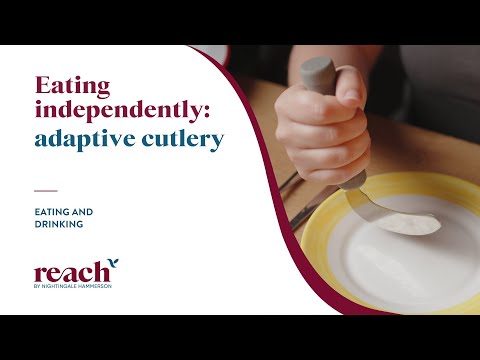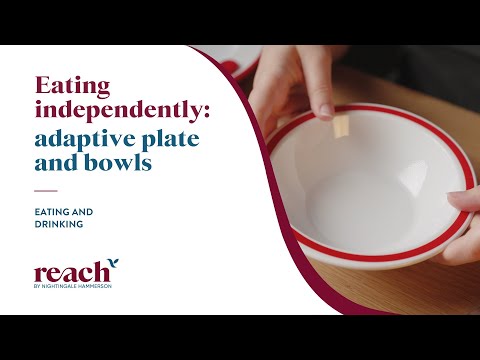Adaptive cups and beakers
Video
Last reviewed:
Related tags:

Have a question about this content? Ask our personal care assistant.
Transcript
As we age, diseases like dementia, Parkinson’s, arthritis, and others can lead to a decline in mobility and dexterity. This often reduces independence, which can further accelerate the deterioration of motor skills, cognitive abilities, and impact an individual’s sense of self. In this video, we demonstrate adapted cups and beakers designed to assist those with eating difficulties, helping them maintain their independence for as long as possible.
Please, see video and links for more details on how to use the various products and the options available.
Double-handed cup: good alternative if you find standard mugs too heavy. You can hold it with both hands. Be mindful of the print you choose, especially if you are caring for someone who cannot differentiate patterns. Purchase double-handed cup
Thermal cup: ideal for people who take longer to drink. It has a lighter weight. Narrow base helps the drink navigate towards the mouth in an easy way. Purchase thermal cup
Beaker: spouts can come in different size openings while More handles allow a better grip. Be mindful that it is more difficult to differentiate a hot drink in this type of cup, so try the drink without the spout. Purchase beaker
Nosy Cup: easier for tipping your drink without having to lean your head backwards too much. Lightweight. Plastic. These can come double handled or without handles. Purchase nosy cup
Angled cup: ideally used by someone who is caring for a person who has difficulties drinking. Its angle offers a more controlled perspective when providing the drink. Purchase angled cup
Remember, the number one goal is maintaining independence for as long as possible.
Related tags:

Have a question about this content? Ask our personal care assistant.


